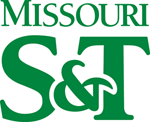Newswise — ROLLA, Mo. – The city of the future could start with a village – Missouri University of Science and Technology’s Solar Village, to be exact.
S&T researchers will study the Solar Village and its residents as their living laboratory over the next three years thanks to an $800,000 grant from the National Institute of Food and Agriculture, funded as part of the National Science Foundation’s Cyber-Physical System initiative. The research team is led by Dr. Simone Silvestri, principal investigator and assistant professor of computer science, and Dr. Denise Baker, co-principal investigator and assistant professor of psychological science
The researchers will use data they collect from Solar Village residents, as well as a massive online survey of city dwellers across the country, to investigate the social and behavioral underpinnings of human interaction with smart appliances and smart energy management systems.
Energy management systems such as the Eco Village’s Nest Home can monitor connected devices to tell users how much energy they are using at any given time. Smart energy management systems help users schedule the best time to run appliances based on user goals such as reducing energy bills or balancing loads.
The study and survey will serve as the basis of a comprehensive framework for an energy management system for smart homes. The framework would address multiple types of user behavior, including physical, psychological, economic, moral and social.
“We will make use of graph theory, machine learning, algorithm design and optimization techniques to propose a framework for energy management that takes into account these different types of well-being,” says Silvestri.
As part of the study, Zachary Bahr, a junior in computer science, developed a “smart outlet” that enables the remote monitoring and control of appliances in the Solar Village. The data collected through the smart outlet will be used to study the usability and user acceptance of the Solar Village’s smart energy management system. Each smart outlet collects energy usage data from the smart appliance plugged into it, and sends the data into a computing cloud where it is picked up by the research team’s computers.
The research team has already distributed one online survey, eliciting about 15,000 responses from people around the country, and plans to release several more surveys.
“We’re asking (people) to think about how important each appliance is to their physical, psychological, economical, moral and social well-being,” Baker says. “The ultimate goal is to create a system that not only knows the best time to run your appliances to save money and energy, but is also intuitive to your needs on a behavioral level. We’re looking at these aspects of well-being coupled with how long and how often people use their appliances.”
Baker uses the example of how a washing machine would operate in a smart energy management system once it was loaded and ready.
“The washer would run right away for some users, as soon as the dishwasher is done for other users, and not until the middle of the night for other users,” she says.
Silvestri and Baker’s research team includes three graduate students—Delicia Vaz, an international student from India pursuing her master’s in industrial and organizational psychology; Valeria Dolce, a visiting student from Italy pursuing a master’s in computer science; and Simon Thourgaard, a Ph.D. student in computer science from the Netherlands, as well as undergraduate students in computer science, psychological science and engineering management. The team also includes Jhi-Young Joo, a research scientist at Lawrence Berkeley National Laboratory.
One of the broader goals of the project, Baker says, is to bring students from different disciplines together to expose them to different methods and perspectives on solving cutting-edge problems.
Their project is called “Integration of Social Behavioral Modeling for Smart Environments To Improve Energy Efficiency of Smart Cities.” The research is connected to Missouri S&T’s Smart Living signature area, one of four focus areas for research and teaching.
Silvestri will be joining the University of Kentucky’s computer science department in fall 2017.
